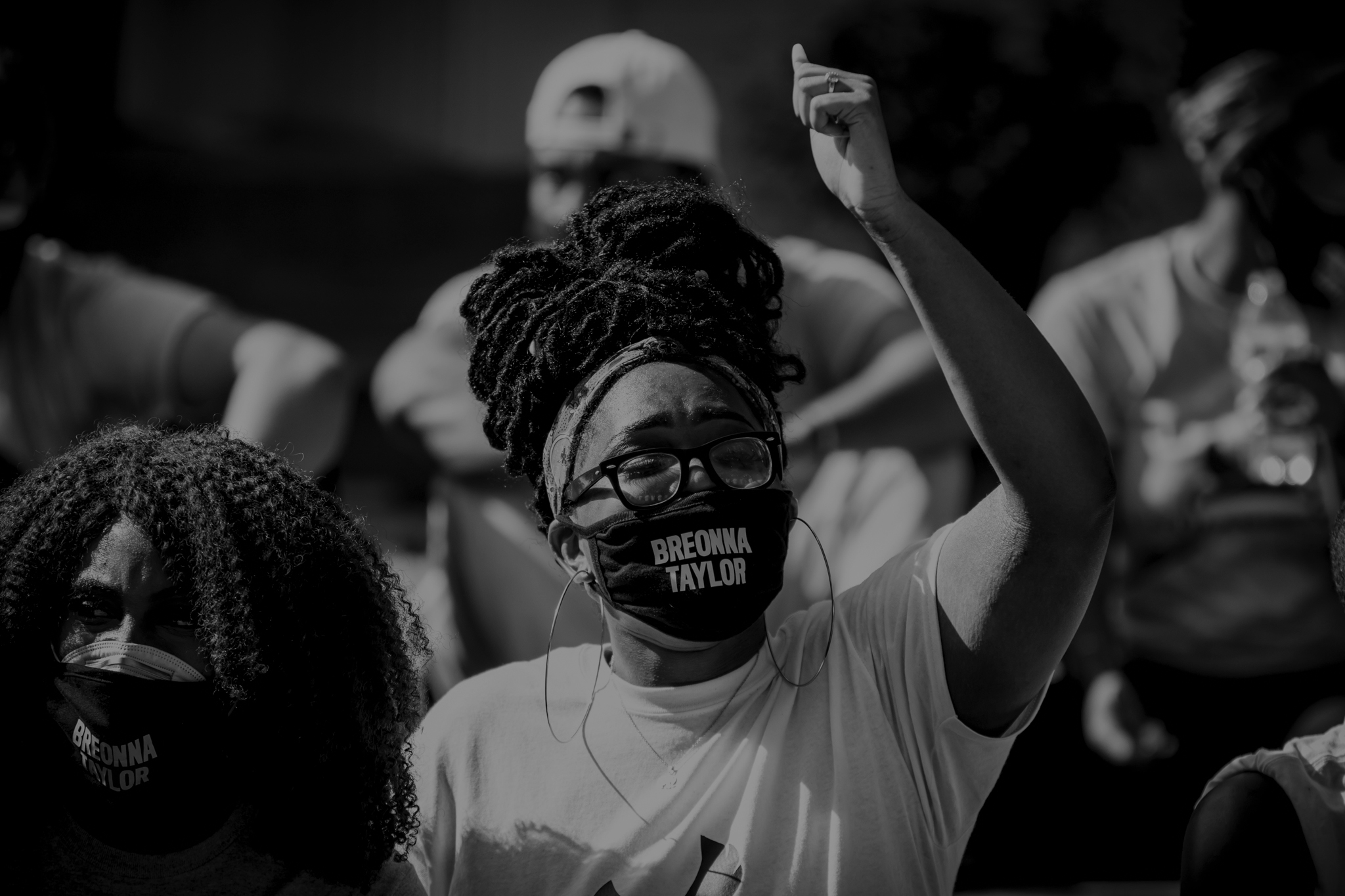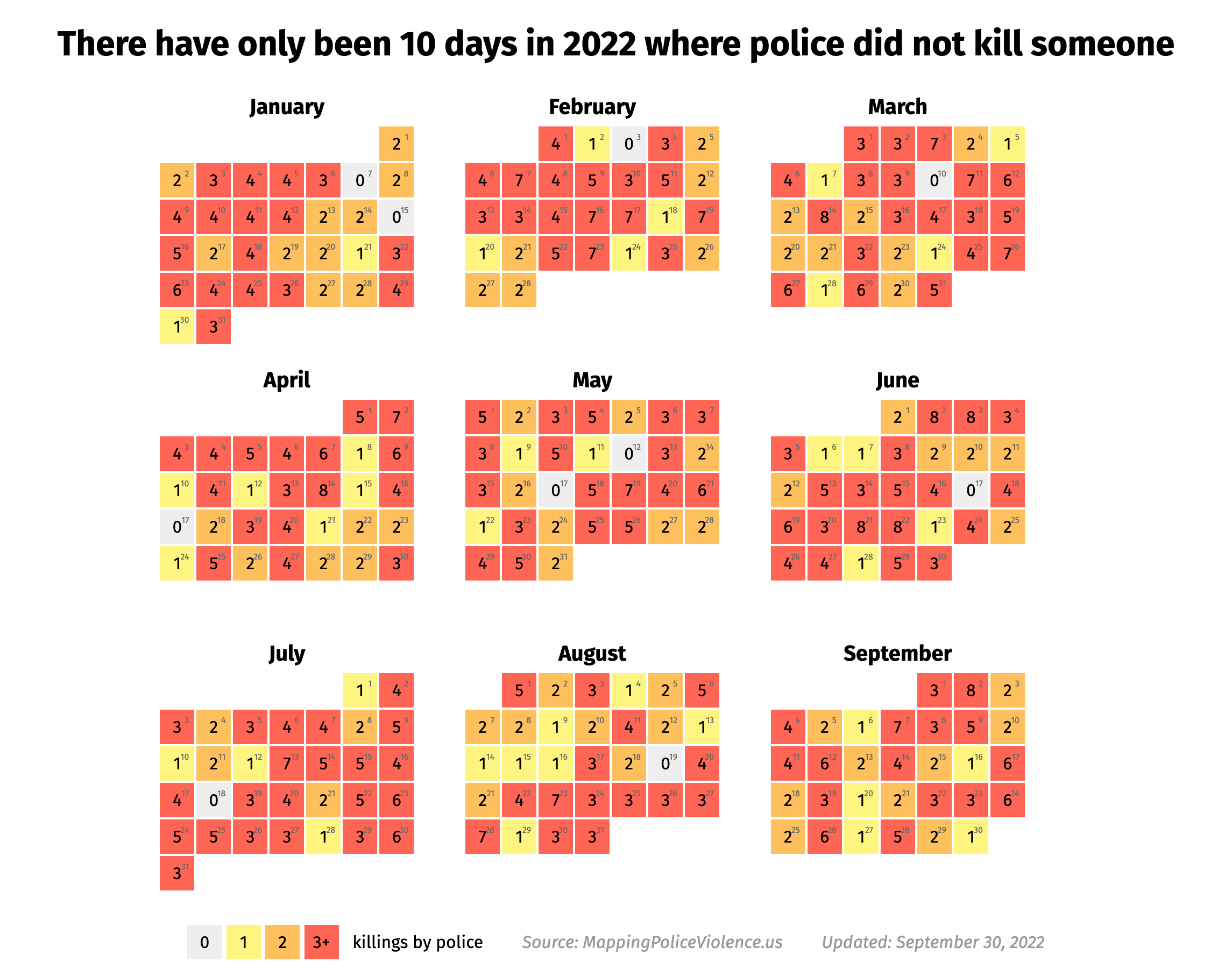
© Marquis Victor x Nicole Garcia | Elevated Thought
Transparency & Accountability
Examples:
Bryan Stevenson
Founder of EJI and fierce advocate focused on ending mass incarceration and amplifying stories that would otherwise go untold.
Until Freedom
An organization on the front lines fighting for justice and focusing on police accountability and criminal justice reform.
Mapping Police Violence
A tool that captures and reports data about police violence across the United States.
Designing the We
Design group focused on community storytelling, including that of redlining across communities in the United States.



